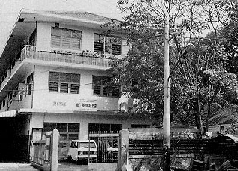 The celebration activities of the Chinese lunar new year has reached high tide when Indonesian Culture and Tourism Minister Jero Watjik opened "Imlek exhibition" in central Jakarta on Thursday as the Chinese Spring Festival draws near.
The celebration activities of the Chinese lunar new year has reached high tide when Indonesian Culture and Tourism Minister Jero Watjik opened "Imlek exhibition" in central Jakarta on Thursday as the Chinese Spring Festival draws near.Since the beginning of this month, colorful decorations have dominated streets, shopping centers and Chinese-Indonesians' houses in welcoming the Chinese New Year, locally called Imlek, in Jakarta and other mid and big cities in the country where joyfulness could be seen everywhere, reports said.
Hanging red lanterns, banners stating Gong Xi Fa Cai (Have a prosperity future), ang pau trees and other ornaments decorate most malls, star-rated hotels and restaurants as people gear up for the Chinese New Year.
The new year celebration period, which could be lasted for about one week in some areas, is a time for family and friends to wish each other the best in life. Children are remarkably happy as they look forward to receiving ang pao, red envelopes containing money. The envelopes are traditionally handed out to younger people by their parents, grandparents and relatives, and even close neighbors and friends.
In the "China Town" area in west of Jakarta, poor people flocked to Buddhist temples in the hope that worshipers will hand them some money, which can also be regarded as ang pao even though it does not come in a red envelope.
In recent years since the celebration of the Chinese New Year was allowed by the government in 2000, the festival is not only enjoyed by Chinese-Indonesians but also by other Indonesians of different backgrounds.
"I like watching the barongsay (lion dance). I even gave it an ang pao," said Icha, a native Indonesian as she enthusiastically talked about the performance.
The dance, usually performed by martial art masters, often highlights Chinese New Year celebrations. Lions symbolize good luck and it is believed that their fierceness scares off evil spirits. The vigorous show is accompanied by musicians playing a large drum, cymbals and gongs.
Just like Icha, many other people also welcome the holiday and become jovial during the festivity while some who have a keen business sense make the best of it to make money. They sell various accessories related to the holiday or traditional food that sells like hot cakes at this time.
Seasonal vendors in West Jakarta's Chinatown, or Glodok, for example, are among those to reap in vast sums of money. Like Andi, 32, who used to sell pirated video compact discs before deciding to sell paraphernalia for Imlek like firecrackers, small and large deng long (red lanterns) and, of course, red envelopes. He sells one lantern for 12,500 rupiah (about 1.3 US dollars) and a string of firecrackers for 35,000 rupiah.
His daily turnover can reach 2 million rupiah and he expects to enjoy a good profit from a total turnover of 18 million rupiah in this year's Imlek.
To mark Chinese New Year, the West Jakarta's agency of tourism and culture will organize a festival in the old town of Jakarta. There will be a procession carrying the Topekong, a statue of a Chinese god, and a performance of Chinese arts like barongsay and the dragon dance. Betawi (the old name of Jakarta) arts will also be on show.
The Jan. 29 parade will be officially launched by West Jakarta Mayor Fadjar Panjaitan.
Before 1999, Public celebrations for Chinese New Year in the country were not allowed due to a regulation issued by the New Order regime. In 1967, president Soeharto ruled that all activities related to Chinese culture and Confucianism, including New Year celebrations, were banned. After Soeharto resigned in 1998, Chinese-Indonesians, accounting for 5 percent of the population were once again allowed to openly celebrate their culture. The government declared Imlek an optional holiday in 2002 and made it a national holiday the following year.
Despite discrimination against Chinese-Indonesians still apparent in some fields, members of the Chinese community now have the liberty to culturally express themselves. They can now read Chinese newspapers, listen to Chinese songs on the radio and watch news broadcast in Chinese on Metro TV.
Source: Xinhua


No comments:
Post a Comment